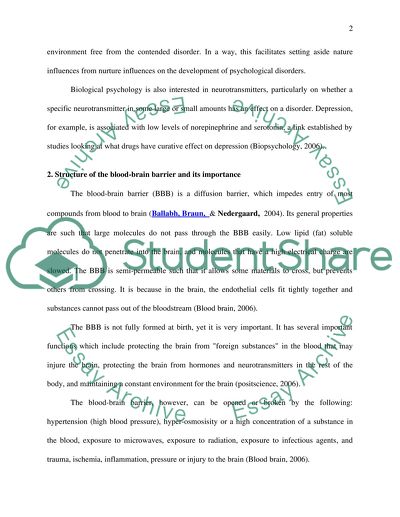Biological psychology Essay Example | Topics and Well Written Essays - 500 words - 1. Retrieved from https://studentshare.org/miscellaneous/1538999-biological-psychology
Biological Psychology Essay Example | Topics and Well Written Essays - 500 Words - 1. https://studentshare.org/miscellaneous/1538999-biological-psychology.


